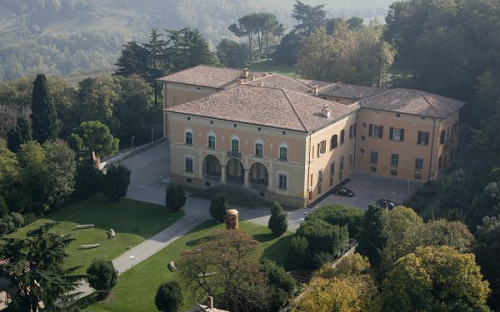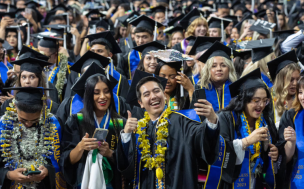This excellence is etched into the Global MBA program. There are five tracks in: China/far east and Europe business relations; corporate finance; design, fashion and luxury goods; food and wine; green energy and sustainable businesses; innovation management.
MBA graduates find careers in global corporations such as Unicredit or LVHM, but also local legends like Philip Morris Italia and Brunello Cucinelli SpA.
The 12-month program, which is taught entirely in English, has formally accepted around 75 candidates this year, but Elisa expects this to increase to around 100 over the next five years.
What make the Global MBA unique?
The unique features are the tracks and the various concentrations. Students are asked to focus on what they are passionate about. There are tracks that are focused on taking Italian excellence global — this is our mantra. Luxury and food and wine — people are very passionate about this here in Italy. Precision mechanics is also very popular in the northern part of Italy, with companies such as Ferrari for example.
And the new one is a sustainable energy track, which is growing very fast.
It is good to work for major players here, but we are trying to train people to work for medium sized firms too.
Which is the most popular of the Global MBA specializations?
The fashion and luxury goods specialization has always been the big one in terms of applications, but in terms of growth we see very significant increases in food and wine both in number and quality of applications. There is a buzz about Italian food and Italian firms are becoming more visible.
What impact does the business school’s location have on the luxury specialization?
There are various ways we interact with these [local] firms and we try to make them a part of our school. We have them as speakers and have them suggest projects for us.
With our positioning, it wouldn’t make sense if we didn’t leverage the business community that we are close to.
What qualities, skills, and previous experiences do you look for in MBA applicants?
Because of the track structures we are very much interested in candidates who are passionate about what they want to do in the future.
Clearly we also search for people with good academic record, people who can sit down and re-think what they know and can acquire more knowledge.
We search for ambassadors as well — our school is not that old so we want candidates who allow us to promote.
We are interested in people coming from all over the world too.
You have a relatively small class size — how does that impact learning?
The MBAs have opportunities to interact with other students on other programs.
And the classroom interaction is ideal — they sit for shared courses with all 75 [of their peers] and they can split into smaller groups of people who share their passions. I think 75 is a very good size.
What about the professors — are they also becoming more international?
We are trying to make this global too. It takes time. It’s difficult to break into the Italian system if you are not Italian or don’t speak good Italian.
What's the most interesting application you've received and why?
One who struck my attention this year was this woman who had spent 10 years in Palestine running every dimension of the humanitarian and business operations of a non-for-profit.
What opportunities are there for MBAs to learn the local language?
We offer courses in Italian. We do encourage the students to learn Italian.
What plans do you have for the MBA this year?
We have started the technology innovation track, which is new.
RECAPTHA :
05
5f
57
8f








